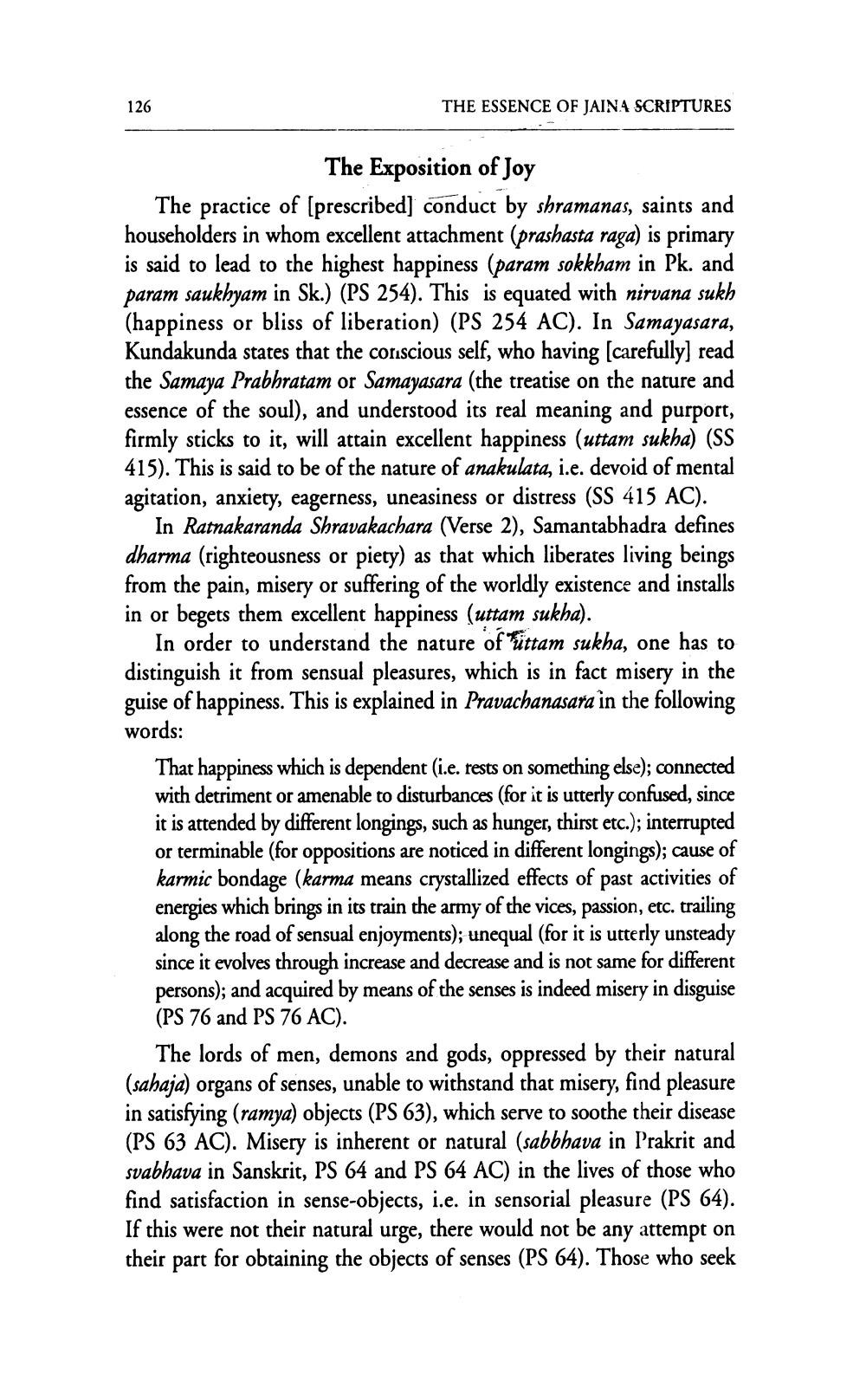________________
126
THE ESSENCE OF JAINA SCRIPTURES
The Exposition of Joy
The practice of [prescribed] conduct by shramanas, saints and householders in whom excellent attachment (prashasta raga) is primary is said to lead to the highest happiness (param sokkham in Pk. and param saukhyam in Sk.) (PS 254). This is equated with nirvana sukh (happiness or bliss of liberation) (PS 254 AC). In Samayasara, Kundakunda states that the conscious self, who having [carefully] read the Samaya Prabhratam or Samayasara (the treatise on the nature and essence of the soul), and understood its real meaning and purport, firmly sticks to it, will attain excellent happiness (uttam sukha) (SS 415). This is said to be of the nature of anakulata, i.e. devoid of mental agitation, anxiety, eagerness, uneasiness or distress (SS 415 AC).
In Ratnakaranda Shravakachara (Verse 2), Samantabhadra defines dharma (righteousness or piety) as that which liberates living beings from the pain, misery or suffering of the worldly existence and installs in or begets them excellent happiness (uttam sukha).
In order to understand the nature of uttam sukha, one has to distinguish it from sensual pleasures, which is in fact misery in the guise of happiness. This is explained in Pravachanasara in the following words:
That happiness which is dependent (i.e. rests on something else); connected with detriment or amenable to disturbances (for it is utterly confused, since it is attended by different longings, such as hunger, thirst etc.); interrupted or terminable (for oppositions are noticed in different longings); cause of karmic bondage (karma means crystallized effects of past activities of energies which brings in its train the army of the vices, passion, etc. trailing along the road of sensual enjoyments); unequal (for it is utterly unsteady since it evolves through increase and decrease and is not same for different persons); and acquired by means of the senses is indeed misery in disguise (PS 76 and PS 76 AC).
The lords of men, demons and gods, oppressed by their natural (sahaja) organs of senses, unable to withstand that misery, find pleasure in satisfying (ramya) objects (PS 63), which serve to soothe their disease (PS 63 AC). Misery is inherent or natural (sabbhava in Prakrit and svabhava in Sanskrit, PS 64 and PS 64 AC) in the lives of those who find satisfaction in sense-objects, i.e. in sensorial pleasure (PS 64). If this were not their natural urge, there would not be any attempt on their part for obtaining the objects of senses (PS 64). Those who seek




